There’s a certain dreamy absurdity to Pig Island, the way the sea hits the shore as if to politely announce itself, and then you look up and — yes — there are pigs. Real pigs. Sunbathing, waddling, sometimes napping like tiny beach emperors in the warm sand. The island is officially called Koh Madsum, a little hop by longtail boat from Koh Samui, but almost everyone just calls it Pig Island now because that’s the bit that sticks in your memory and your camera roll. The ride out usually feels like its own short film: the water turning from clear to clearer, the engine rumbling, a bit of warm spray catching your cheek if the skipper speeds up or gets playful. Then you arrive, step off into shallow turquoise, and suddenly everything slows by half a frame, like your pulse decided to slip into a hammock and stay there for the afternoon.
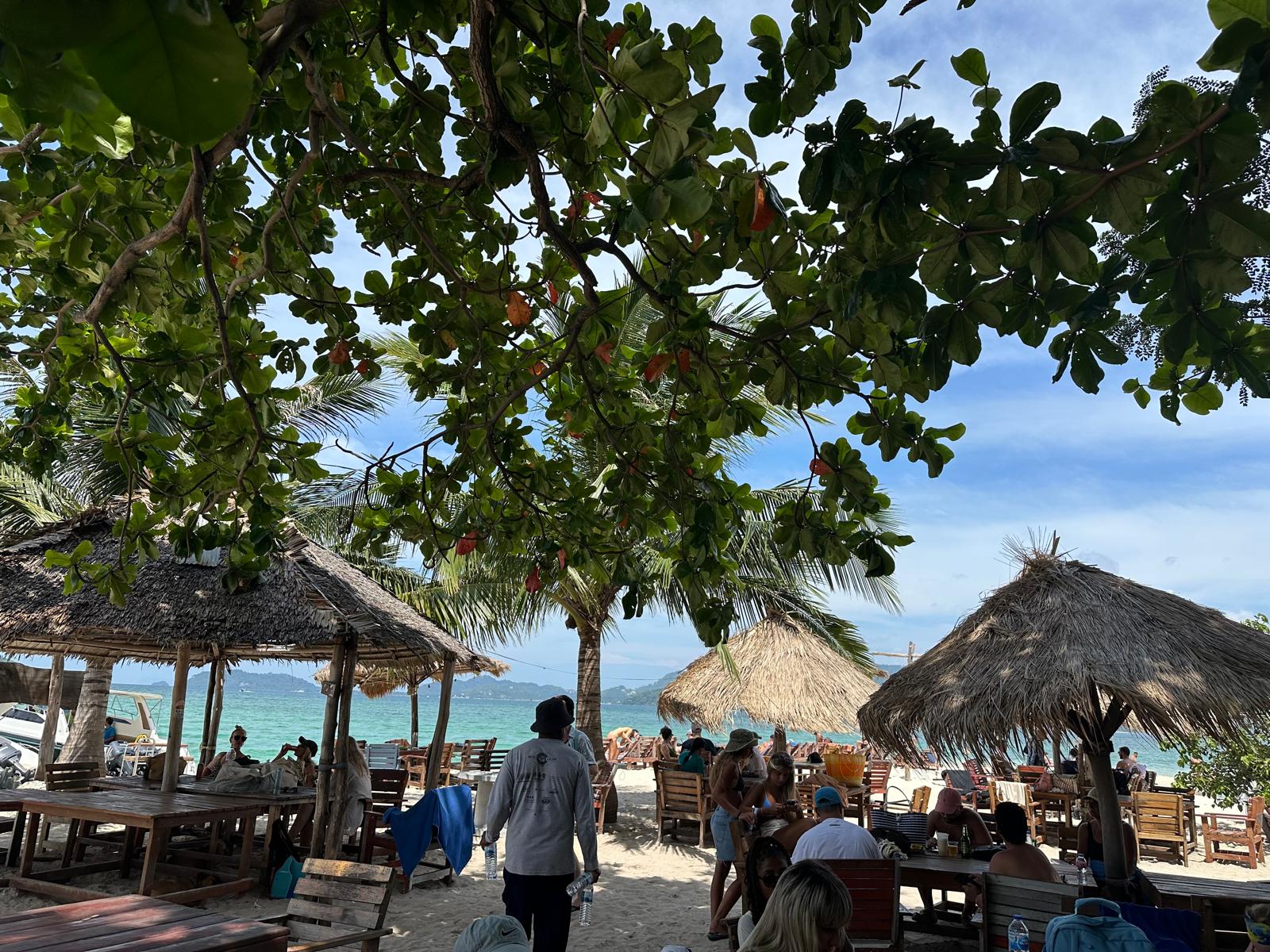
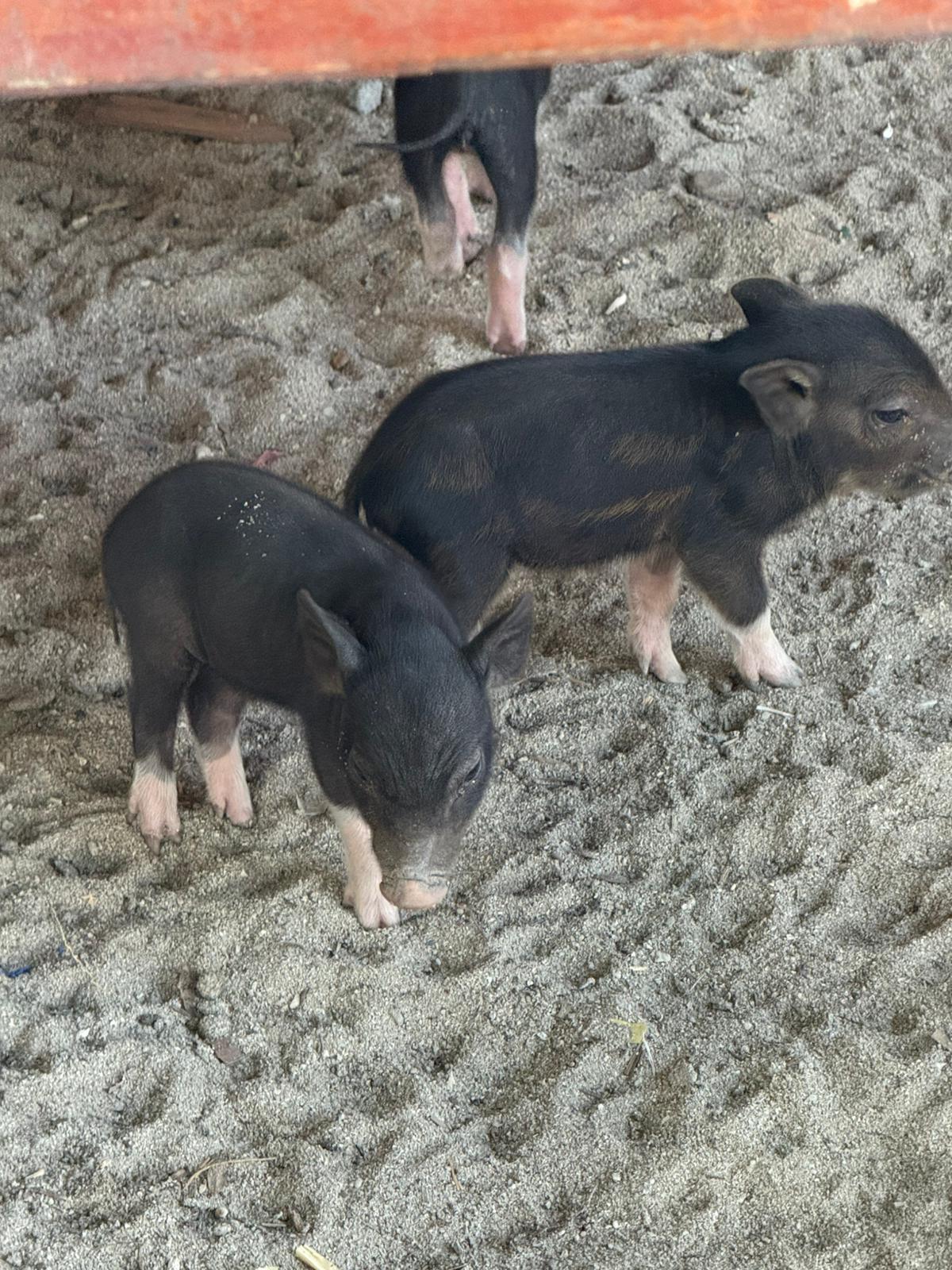
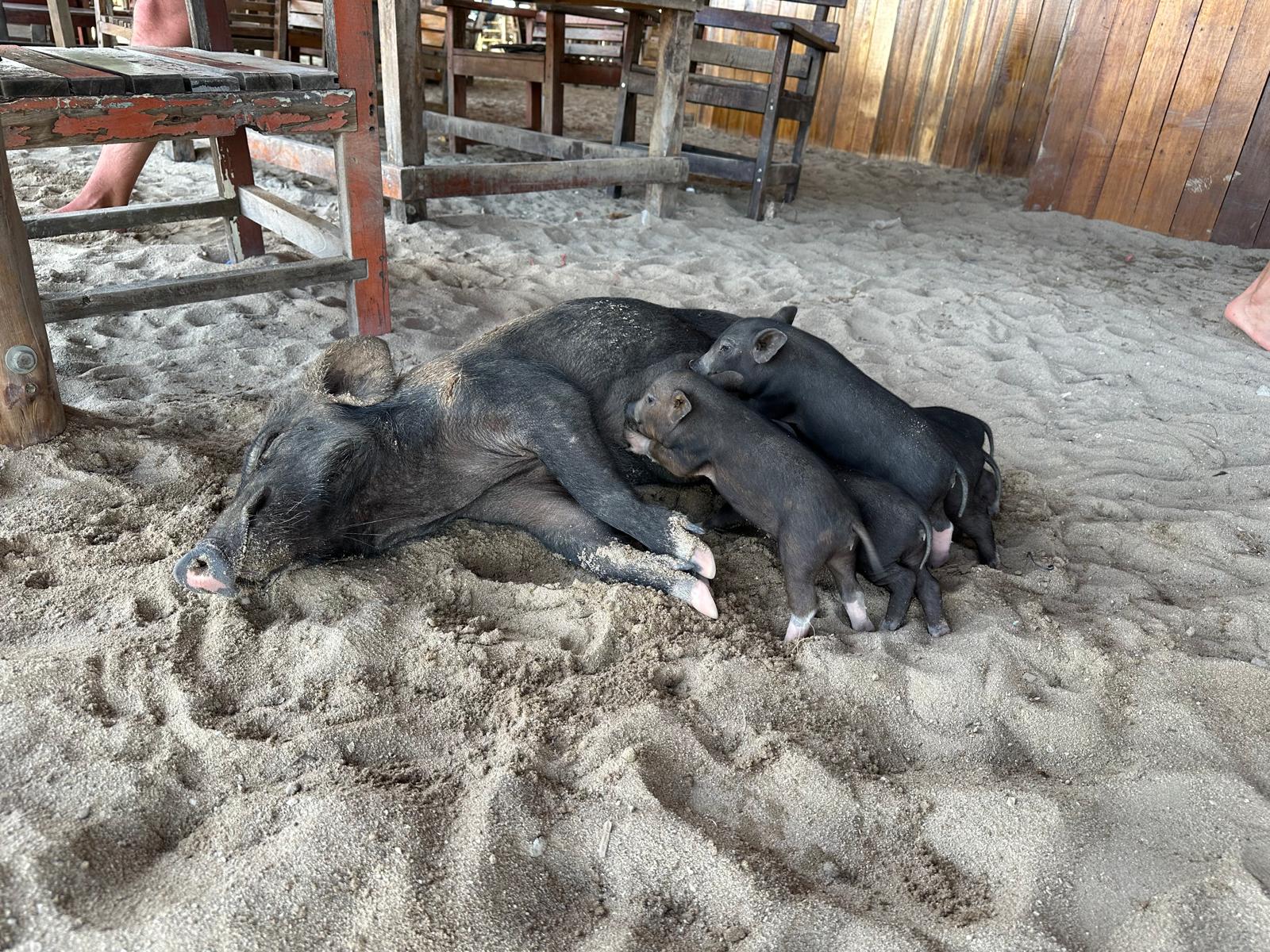
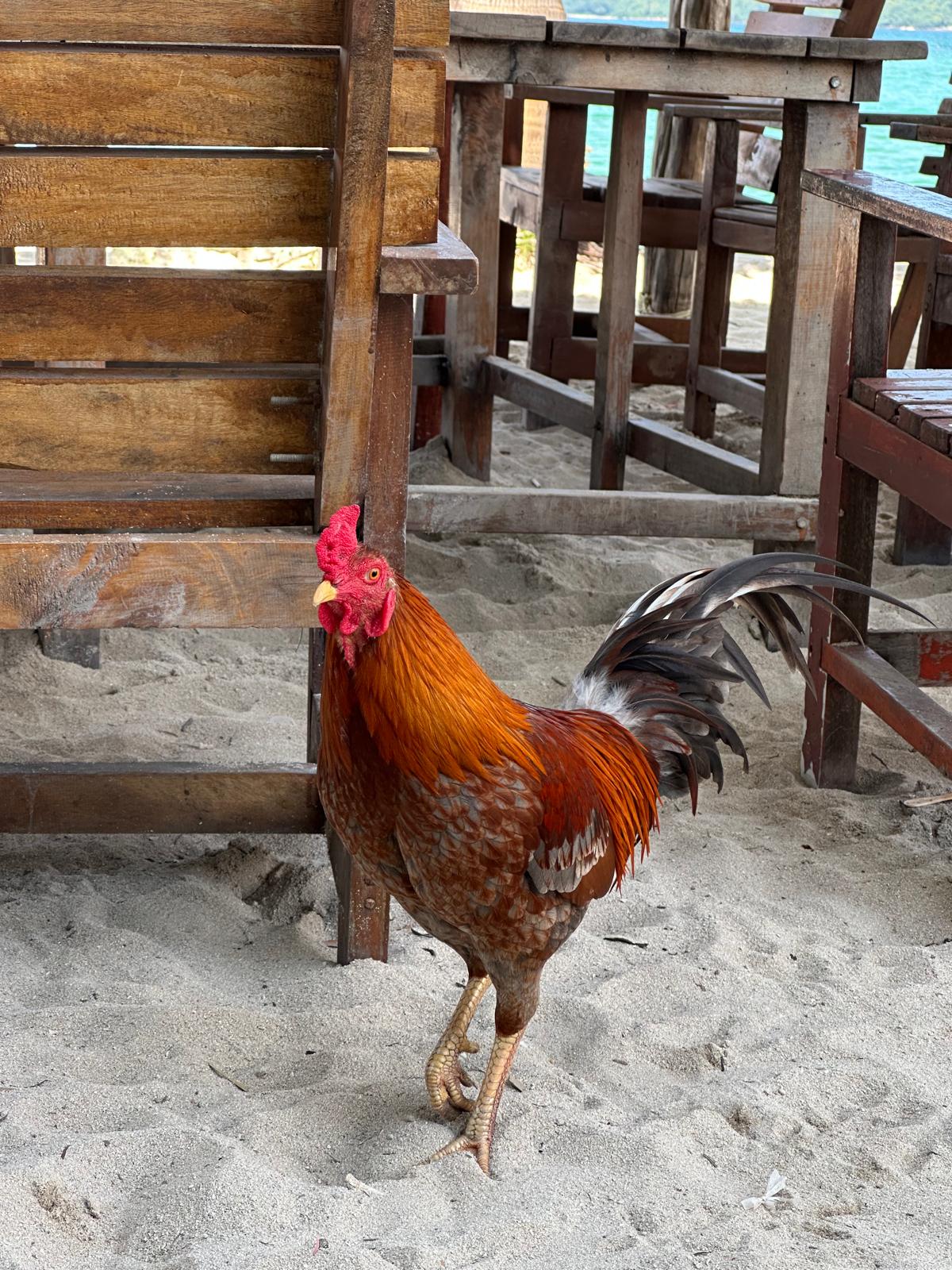
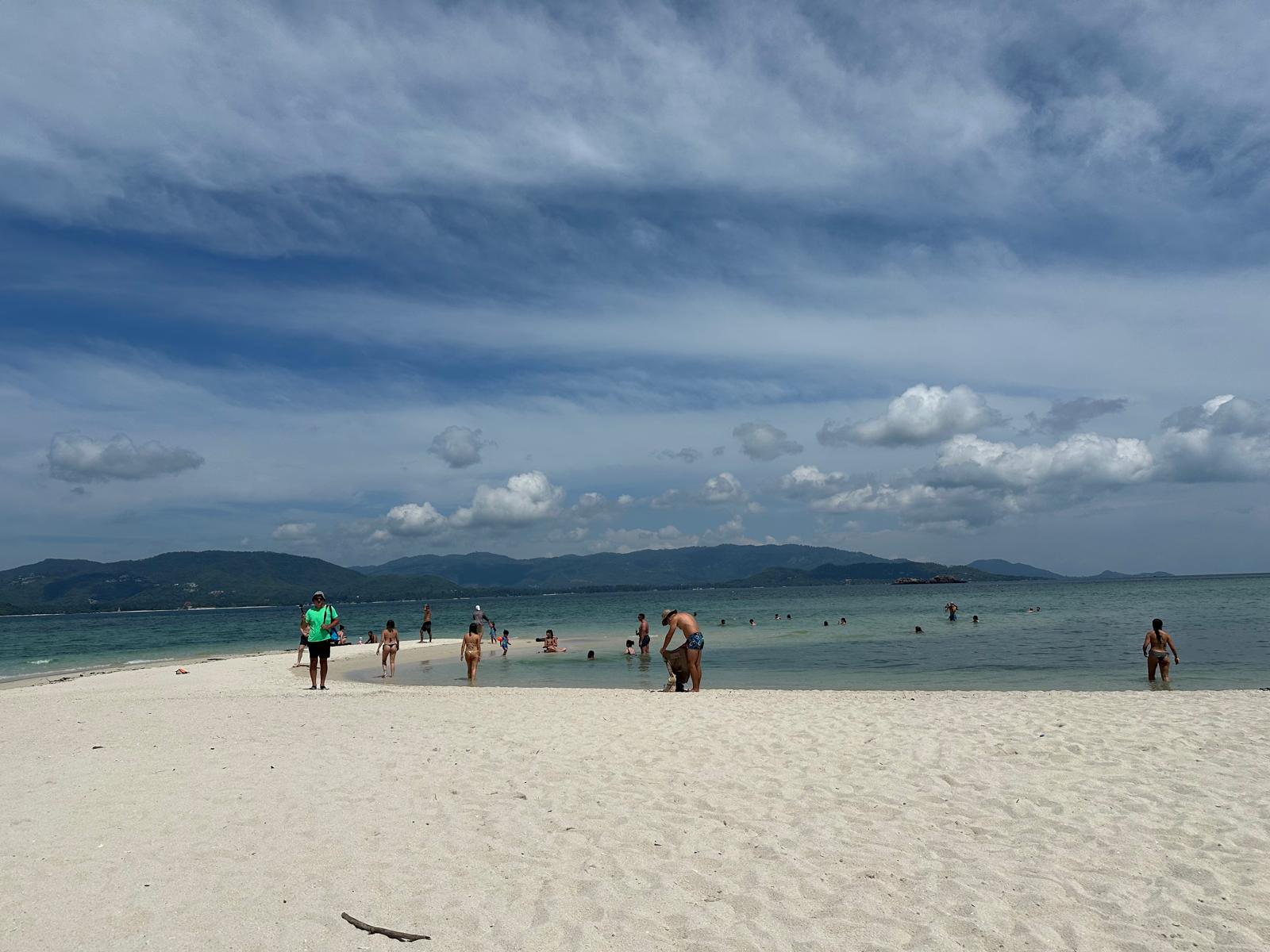
The pigs themselves move like animated characters with their own routines. Some come strolling right up to you with the confidence of beach regulars who know they’re the main attraction. Others are splashed in soft sandy browns, already halfway through a spa treatment of their own creation. And then there’s always that one hyperactive piglet darting around as if it’s running on pure espresso. They grunt for snacks, they sniff your bags with casual entitlement, and once in a while you’ll see someone crouched low, trying to snap the perfect “pig meets ocean” photo. The caretakers gently remind everyone not to feed them anything strange, which seems fair — if the pigs are living on a beach paradise, they might as well be healthy about it.
You start to notice how slow everything feels, how warm the light looks when it bounces off the pale sand and the low tide water. There’s no real checklist here: maybe a short swim, a slow drink, maybe nothing at all. People lounge and talk softly, or sit without talking at all, just looking at the sea like they’re remembering something ancient. If you stay long enough, you start to understand: it’s not just novelty. It’s the gentle weirdness of letting life be simple, harmless, and slightly surreal. A tropical postcard, but with a wink.
Under the shade of low, leafy branches and thatched huts, the beach café blends into the island instead of sitting on top of it. The sunlight filters through the leaves in little freckles, landing on weathered wooden tables smoothed by years of saltwater skin and drifting sand. Here you might notice, tucked just beneath one of the benches, a mother pig softly asleep, completely at ease. Three tiny piglets — all black with little white socks, like they’re wearing baby shoes — press into her side to nurse. Their movements are small and clumsy, unsure but determined, and the whole thing feels almost too gentle to disturb. The world is full of noise, but this moment hums in a quiet you can feel more than hear.
A rooster struts by, feathers glowing copper and deep red, tail curved like someone drew it in a confident single stroke. It moves with the kind of calm ego only a rooster can carry. It knows it looks good. No one blinks — of course there’s a rooster here. This island runs on its own rules, and they’re better than ours.
Step out onto the open beach and the sky suddenly feels enormous. A white sandbar stretches like someone pulled a ribbon into the sea. People wade far out, but the water stays shallow and warm. The clouds look brushed on, soft and slow, like everything else here. Swimmers float, kids laugh, someone splashes lazily, and all of them seem small in the best, most human way.
And those piglets — wandering around your feet, noses digging into sand like tiny archaeologists of the present moment — they aren’t performing. They just *are*. And that’s the whole magic. The place doesn’t try too hard. It doesn’t need to.
This is Pig Island. No grand itinerary, no pressure to “make the most of it.” Just sun filtering through leaves, sand sticking to your ankles, the ocean breathing in its old slow rhythm, and the soft sound of piglets nursing under a wooden table. A place where, for a little while, the world forgets to hurry — and you remember how to simply be.
Leave a Reply